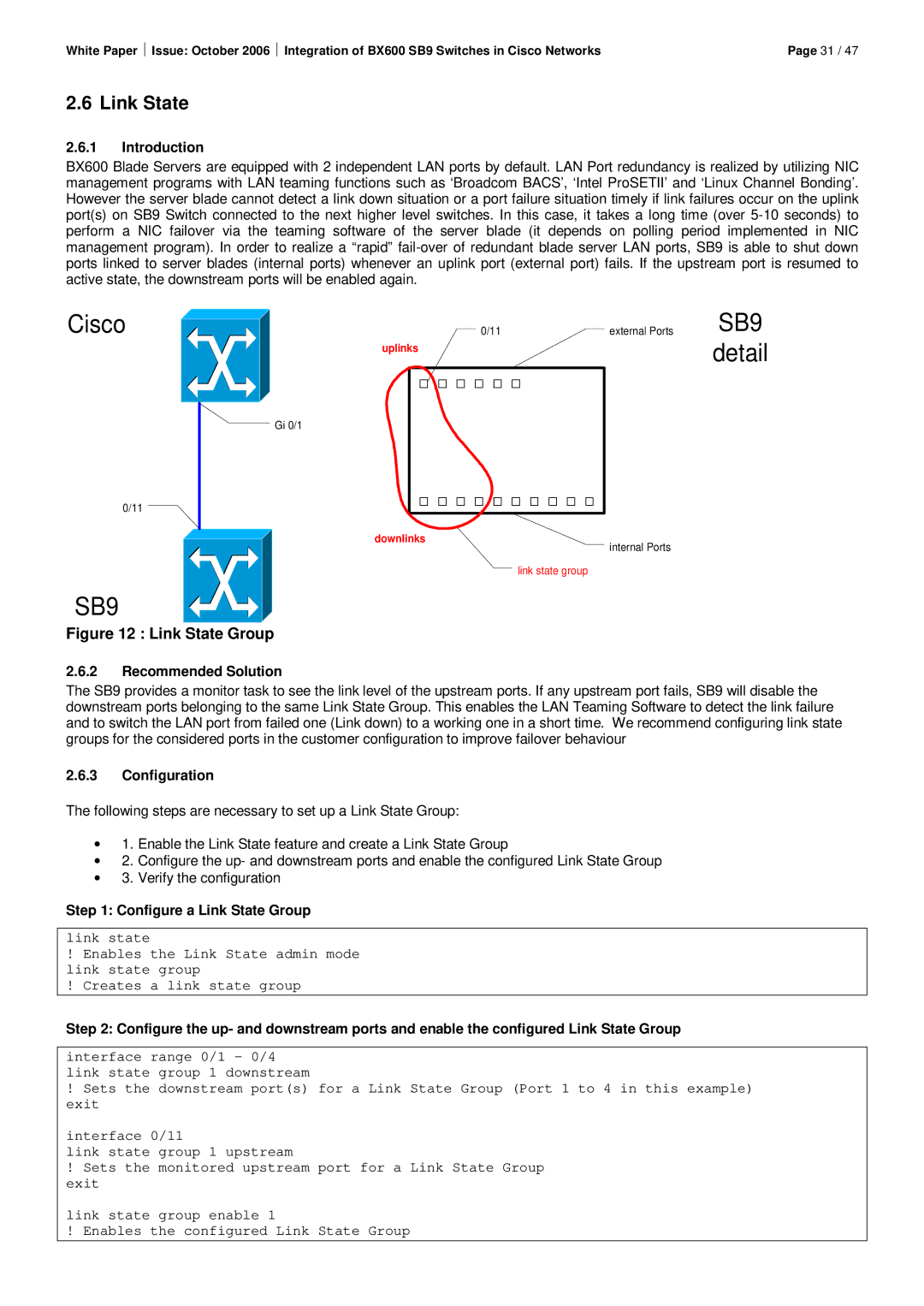
White Paper ⏐ Issue: October 2006 ⏐ Integration of BX600 SB9 Switches in Cisco Networks | Page 31 / 47 |
2.6 Link State
2.6.1Introduction
BX600 Blade Servers are equipped with 2 independent LAN ports by default. LAN Port redundancy is realized by utilizing NIC management programs with LAN teaming functions such as ‘Broadcom BACS’, ‘Intel ProSETII’ and ‘Linux Channel Bonding’. However the server blade cannot detect a link down situation or a port failure situation timely if link failures occur on the uplink port(s) on SB9 Switch connected to the next higher level switches. In this case, it takes a long time (over
Cisco
0/11 ![]()
SB9
0/11 | external Ports |
uplinks
Gi 0/1
downlinks
internal Ports
link state group
SB9
detail
Figure 12 : Link State Group
2.6.2Recommended Solution
The SB9 provides a monitor task to see the link level of the upstream ports. If any upstream port fails, SB9 will disable the downstream ports belonging to the same Link State Group. This enables the LAN Teaming Software to detect the link failure and to switch the LAN port from failed one (Link down) to a working one in a short time. We recommend configuring link state groups for the considered ports in the customer configuration to improve failover behaviour
2.6.3Configuration
The following steps are necessary to set up a Link State Group:
∙1. Enable the Link State feature and create a Link State Group
∙2. Configure the up- and downstream ports and enable the configured Link State Group
∙3. Verify the configuration
Step 1: Configure a Link State Group
link state
!Enables the Link State admin mode link state group
!Creates a link state group
Step 2: Configure the up- and downstream ports and enable the configured Link State Group
interface range 0/1 – 0/4 link state group 1 downstream
!Sets the downstream port(s) for a Link State Group (Port 1 to 4 in this example) exit
interface 0/11
link state group 1 upstream
!Sets the monitored upstream port for a Link State Group exit
link state group enable 1
! Enables the configured Link State Group
